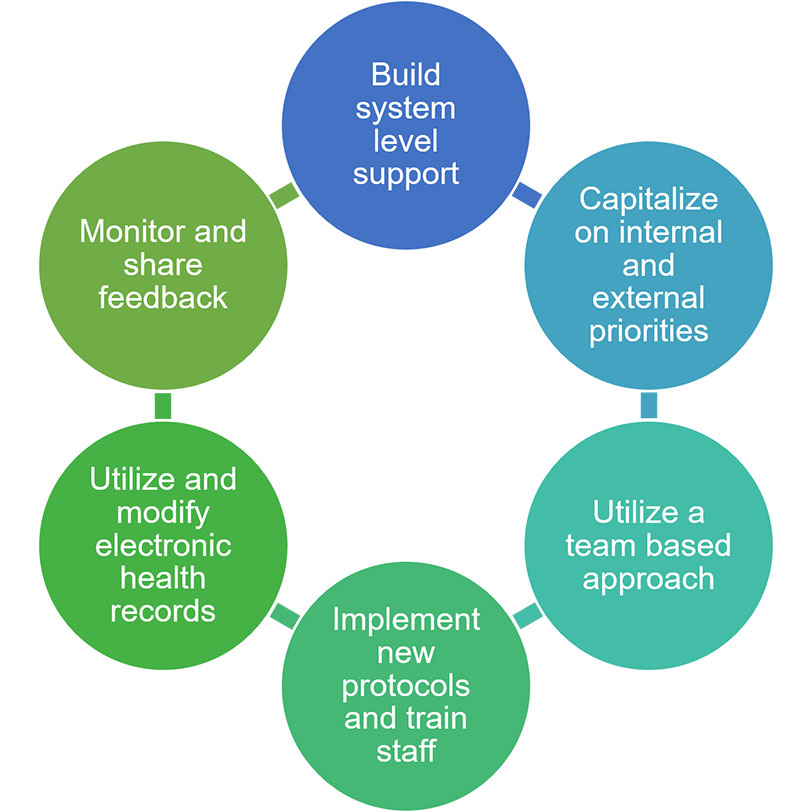Background
As most people see a healthcare provider at least once per year, health systems are in a unique position to identify people that use tobacco, assess their willingness to quit, and to help connect those interested to tobacco dependence treatment. Many health systems, however, do not have standardized processes and systems in place to make this a routine practice.
Between 2014-2017, ClearWay Minnesota℠ attempted to address this gap by awarding two-year grants to five Minnesota health systems. The goal of the grant was to improve tobacco dependence identification and treatment delivery by implementing health systems changes using best-practices from the field.
ClearWay Minnesota℠ hired PDA to conduct a process evaluation to help gain a better understanding of what it takes to implement tobacco-related systems changes within and across the funded health systems.
Approach
PDA’s process evaluation involved conducting semi-structured, in-person interviews with key staff and leadership from each health system at the beginning, midpoint, and end of the grant. PDA also reviewed grantee workplans and other documentation such as progress reports, meeting notes, and presentations.
Results
After synthesizing data across the five funded health systems, PDA identified key facilitators and challenges of the grantees.
KEY FACILITATORS
- Having a dedicated tobacco systems-change coordinator on staff
- Obtaining buy-in from decision makers across the health system
- Capitalizing on internal and external priorities
- Involving healthcare team members in the design, testing, and implementation of new processes
- Using the electronic health record (EHR) as a documentation and referral tool
- Monitoring adherence to new protocols
KEY CHALLENGES
- Ensuring that all staff are trained on new protocols and procedures
- Timeliness of EHR changes
- Keeping tobacco treatment elevated as a priority
At the end of each two-year grant period, PDA created brief systems change case studies describing key strategies, successes, challenges, and lessons learned for each funded health system.
Overarching findings have been shared through posters at multiple conferences and in this paper published in the American Journal of Accountable Care. Results from this evaluation can be used by other funders of health systems change strategies, as well as health systems considering implementing systems change initiatives.
Related Highlights
Contributing to statewide tobacco survey development and data analysis
PDA supported the Indiana Department of Health by developing the adult tobacco questionnaire and providing survey data analysis.
Using data to identify health equity priorities in a statewide needs assessment
PDA used mapping and key informant interviews to identify populations being missed by a state nutrition program
Facilitating learning for a health equity-focused community grant program
PDA's evaluation helped the Hawai'i Community Foundation share successes and opportunities in serving priority populations.
See More Highlights
Our Team
Our dedicated and talented team is united by our common desire to improve communities.

Harlan Luxenberg
President & CEO

Angie Ficek
Senior Evaluator II

Cat Jones
Evaluator II

Stephanie Grace
Evaluator I


